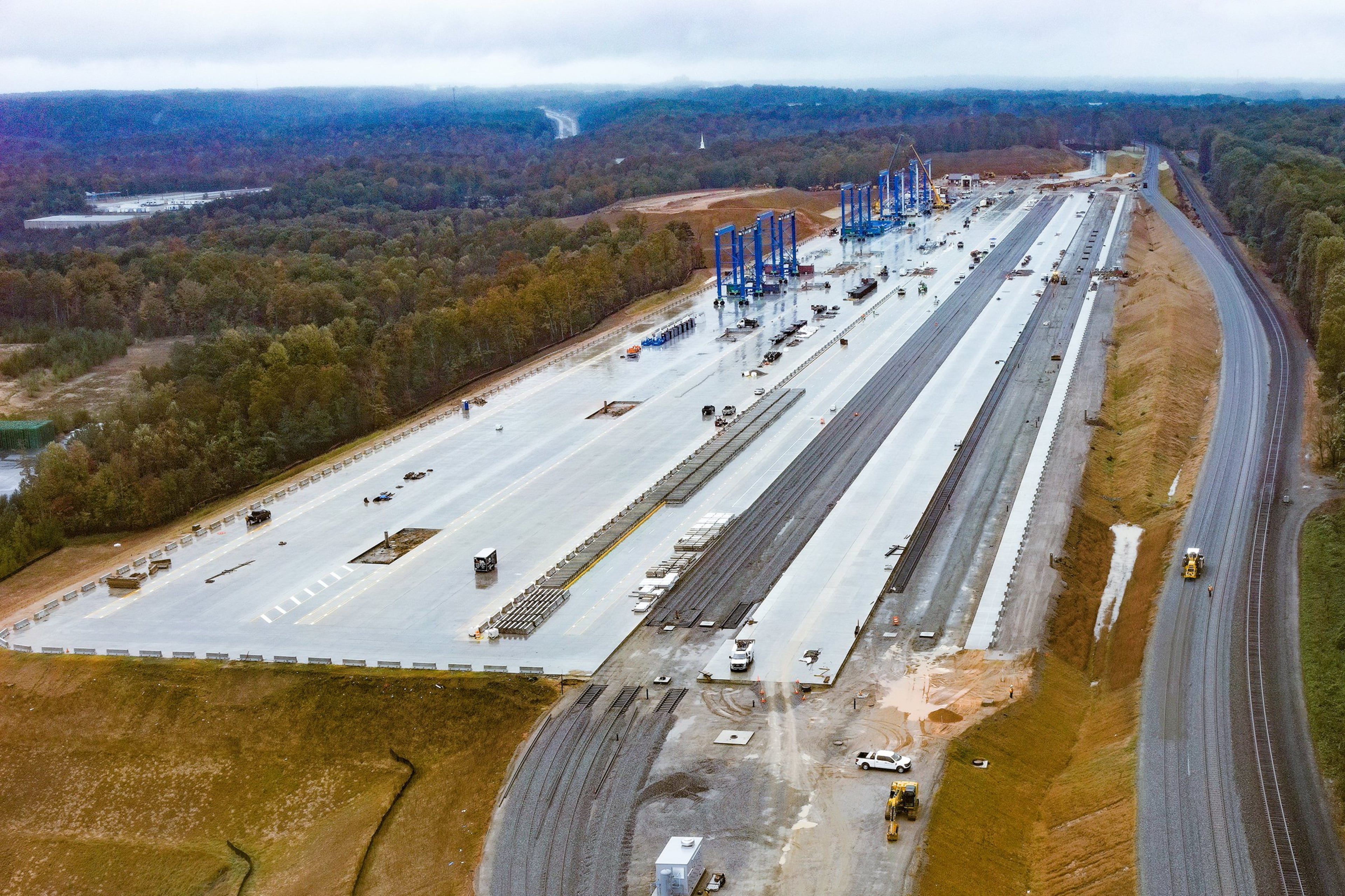Tariffs hurt Georgia’s ports in October. There’s cautious optimism for 2026.
Georgia’s bustling Savannah port wasn’t so busy in October, with container volumes down 8.4% compared to the same month a year ago, as the effects of global tariffs continued.
But Georgia Ports Authority President and CEO Griff Lynch is optimistic that the second half of the fiscal year, starting in January, will see improvement at its Savannah and Brunswick ocean ports.
“October was generally just a soft month, and … we see this riding through the rest of the year,” Lynch told the authority board at a Monday meeting in Atlanta. “We’re hoping for a bounce back in the second half of the (fiscal) year.”
The Brunswick port, which largely sees cargo from the auto and heavy equipment industries, was actually up more than 5% last month, but it is down 9% in volumes year-to-date.
October’s slump reflected an earlier peak season after customers advanced their shipments to try to beat tariff dates, Lynch told The Atlanta Journal-Constitution.
“There’s some uncertainty in the marketplace,” he said.
But he told The Atlanta Journal-Constitution the Trump administration has demonstrated “practicality and some more reasonable thought process” in trade policy that gives them hope, especially given the recent rollback of tariffs on staples like beef and coffee and deals with countries, such as South Korea and China.
Whether an anticipated Supreme Court decision forces a backtrack on tariffs or more trade deals follow, “I really, truly believe things are settling down,” he said.
And they’re doing better than they had previously expected, Lynch said.
Customer forecasts in the spring for the year were “dire,” he recalled. “We have not seen that materialize.”
Board Chairman Alec Poitevint described his current mindset with two words: “cautious optimism.”
With trade tensions turned down from a boil, the authority is turning its attention to a major milestone next year.
It plans to open a major inland rail port, the Blue Ridge Connector near Gainesville, in May. That facility promises to eliminate 52,000 truck trips through metro Atlanta in its first year by shifting cargo onto train tracks.
There were some bright spots in the latest port data, too.
Year-to-date shipping volumes were up 4%, with revenue so far at the second highest in Georgia Ports history.
Plus, crucially, Savannah has continued to grow faster than any other U.S. port in 2025, Lynch said.
Poitevint attributed that to the ports’ efficiency and service levels. “Always when there’s a tightness of the market available, service carries a high priority,” he said.
“I think that we’re serving our customers and it matters.”
Lynch pointed to metrics like the time it takes for a container to transfer from a vessel to rail or truck and how long it takes to turn a vessel around as real, money-saving metrics for customers that Savannah excels in.
But the authority isn’t slowing down its long-term planning despite the slump, Lynch said.
The organization “has a history of investing during these periods, in these troughs … so that when we come out of this setback that we’re facing right now … we’ll be in good standing and ready to handle that with new capacity online,” he told the board.
As just one example, the board on Monday approved a $9.5 million investment in its technical infrastructure, including a new data center set to take several years to come to fruition.
“We always have the long-term approach,” Poitevint said.
“The customer has options … so the question is, we have to perform at a level to make sure the customer remains confident in us.”
It’s also moving forward with a delayed dredging of the Brunswick Harbor and looking ahead to the need to deepen the Savannah River again to keep up with market demands, Lynch said. The most recent harbor expansion was completed in March 2022 and deepened the 40-mile shipping channel to 47 feet.
The authority will release a new 10-year operations plan in January.

In the short term, Lynch said they are closely watching the situation at the Suez Canal, where Houthi rebels appear to have pulled back on ship attacks.
While China has been the authority’s largest import customer, more trade is moving toward India and Southeast Asia, and that will make Savannah even more important, Lynch said.
Even without the Suez Canal, it’s still faster to get from that region to Savannah than the West Coast, he pointed out.
“So those are the things that are going to help us grow.”
And if the Suez opens back up — one customer moved two vessels through this past week with a naval escort, he noted — “that’s going to be a boon for the East Coast and especially Georgia.”



